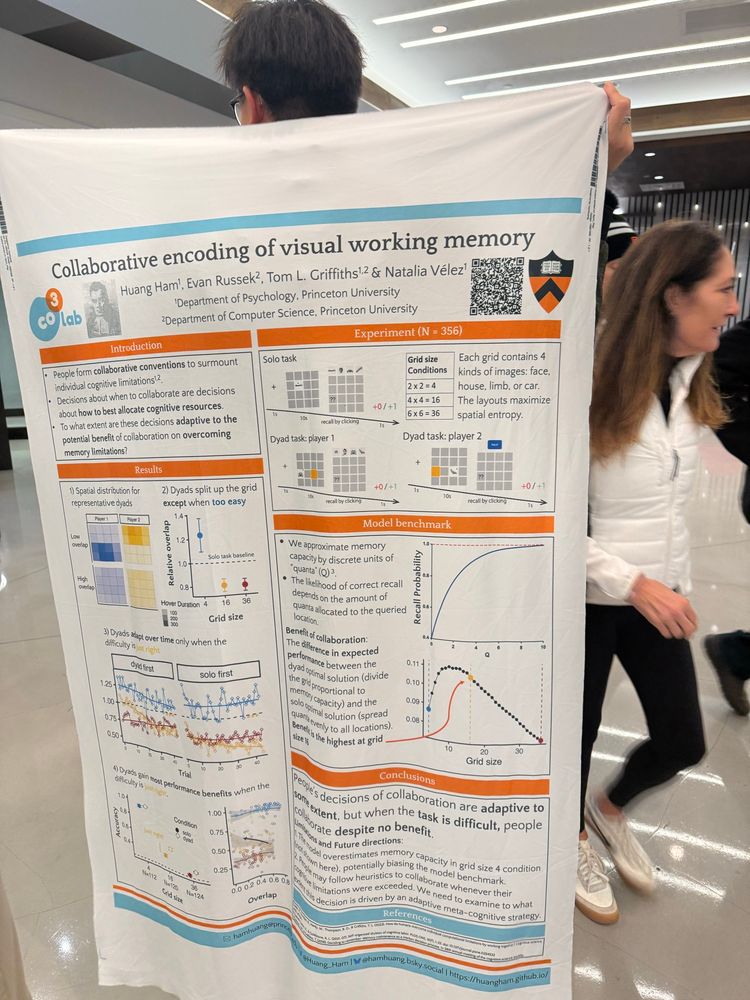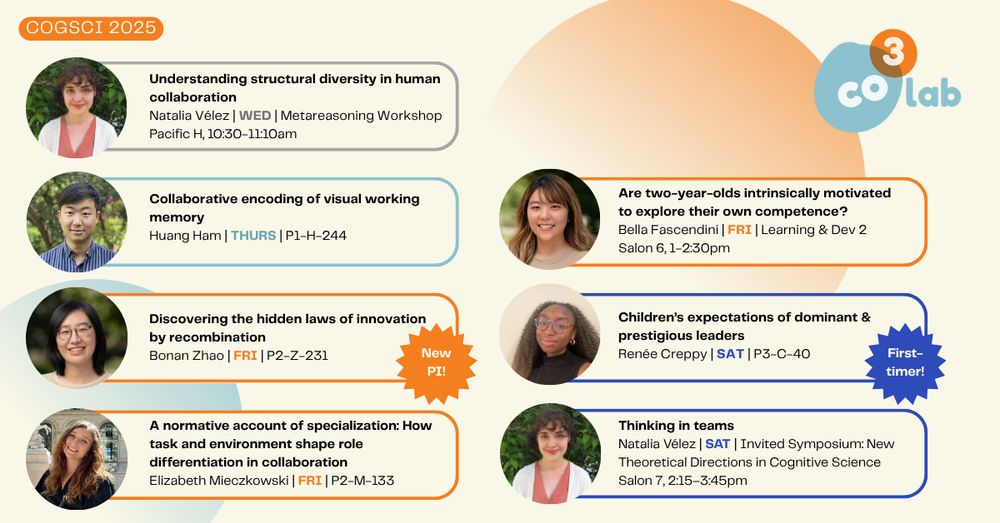Ham
@hamhuang.bsky.social
42 followers
30 following
13 posts
PhD student @Princeton Psych under Drs. Natalia Vélez & Tom Griffiths, studying the computational cognition of human aggregate minds. Before @Penn @Cal
Posts
Media
Videos
Starter Packs
Reposted by Ham
Ham
@hamhuang.bsky.social
· Aug 16
Ham
@hamhuang.bsky.social
· Aug 16
Ham
@hamhuang.bsky.social
· Aug 16
Ham
@hamhuang.bsky.social
· Aug 16
Ham
@hamhuang.bsky.social
· Aug 16
Ham
@hamhuang.bsky.social
· Aug 16
Ham
@hamhuang.bsky.social
· Aug 16
Ham
@hamhuang.bsky.social
· Aug 16

Social inequity disrupts reward-based learning - Communications Psychology
People learn from rewards differently when outcomes are shared with others. Learning slows when receiving smaller reward shares, and social stereotypes about partners further impair learning when cogn...
www.nature.com
Ham
@hamhuang.bsky.social
· Aug 16
Ham
@hamhuang.bsky.social
· Aug 16
Reposted by Ham
Reposted by Ham
Robert Hawkins
@rdhawkins.bsky.social
· Jul 21

Collaborative Rational Speech Act: Pragmatic Reasoning for Multi-Turn Dialog
As AI systems take on collaborative roles, they must reason about shared goals and beliefs-not just generate fluent language. The Rational Speech Act (RSA) framework offers a principled approach to pr...
arxiv.org
Reposted by Ham








